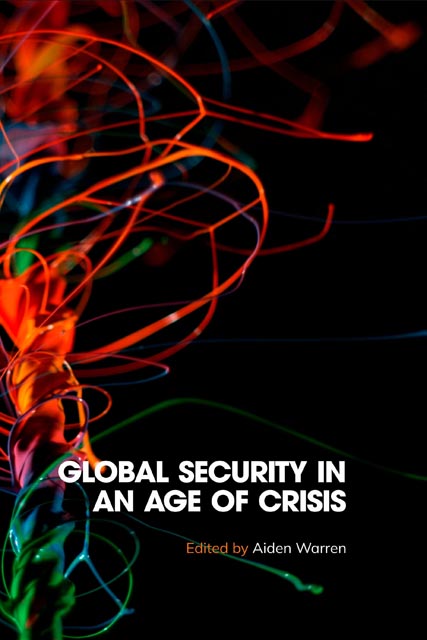Introduction: Global Security in the Postpandemic Age
Published online by Cambridge University Press: 14 July 2023
Summary
Rationale
This edited collection will seek to unpack the key global security issues and challenges the world is facing in the third decade of the twenty-first century. It will consider the extent to which the omnipresent epochal juncture in the form of the global pandemic will redefine (and amplify) the associated security discourse, the applicable theoretical debates, and responses to the new and ongoing threats to our survival.
The intensification of global security across the first two decades of the twenty-first century has seen the old “compression of time and space” adage go to another level. While debates and realities between new and old wars remain in play, the continuance of environmental degradation and the advent of emerging technologies have contributed to what some analysts have described as a new era of “super threat multipliers.” Of course, in 2020 the global security environment entered a stage of heightened and protracted volatility, emanating from COVID-19's multifaceted and pervasive ramifications. The pandemic exacerbated prevalent global challenges, further exposing the fundamental triggers of insecurity and social and economic inequality, along with multiple layers of internal/external tensions. As the title of this book illustrates, the world is clearly going through what can be defined by every measure as a great epochal “age of crisis,” and so it is only logical to presume that it will be a transforming point in global security and, more broadly, modern history.
The tumultuous global response to the COVID-19 pandemic has challenged the beliefs of even the most fervent internationalists and optimists. Most states, including the world's most influential, reshifted their focus inwardly, embracing travel sanctions in the initial stages, implementing export controls, hoarding or concealing information, and sidelining the World Health Organization (WHO) and other multilateral institutions. The pandemic appears to have uncovered, or perhaps reaffirmed, that the liberal order and the global community are illusions, while also illuminating the terrible effects of waning global cooperation. In more apt terms, the pandemic has clearly exposed both the limits of the present multilateral system and the gruesome, deadly costs of the broader structure's collapse. The conundrum is, of course, that if the contagion does spur policymakers to presume that multilateralism is doomed and encourages them to incite or fast-track its undoing, they will be establishing a platform where humanity will be poised to encounter a plethora of other costly tragedies.
- Type
- Chapter
- Information
- Global Security in an Age of Crisis , pp. 1 - 20Publisher: Edinburgh University PressPrint publication year: 2023

